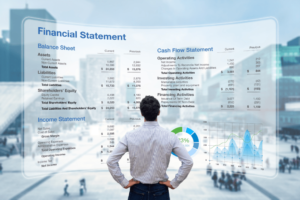A Certified Public Accountant (CPA) plays a vital role in ensuring financial integrity, compliance, and strategic guidance for individuals and businesses. But what exactly is required to become a CPA, and what does the job entail? Whether you’re considering the profession or hiring a CPA, understanding the qualifications, skills, and responsibilities is key.
Rigorous Requirements
CPAs are highly educated professionals, certified by their State CPA Governing Board of Accountancy, that must meet the educational and knowledge sufficiency requirements to be issued a license. State licensing requirements vary, but the minimum standard requirements include
- Passing a background investigation
- Passing the Uniform Certified Public Accountant Examination
- 150 semester units of college education
- Complete a four-semester hour Board-approved ethics course, pass an exam on the Board’s Rules of Professional Conduct every two years.
Lastly, most states require candidates to complete 1–2 years of supervised accounting experience, typically under a licensed CPA. This helps ensure you can apply your knowledge in real-world settings.
Pass the Exam
To become a CPA in the United States, the candidate must sit for and pass the Uniform Certified Public Accountant Examination (Uniform CPA Exam), which is set by the American Institute of Certified Public Accountants (AICPA) and administered by the National Association of State Boards of Accountancy (NASBA). The Uniform CPA Exam consists of the following disciplines:
- Auditing and Attestation
- Financial Accounting Reporting & Regulation
- Business Environment and Concepts
- A fourth discipline section chosen by the candidate from Business Analysis and Reporting, Information Systems and Controls, or Tax Compliance and Planning
Commitment to Continuing Education
CPAs are required to take typically 40 hours annually of continuing professional education courses toward continuing professional development to renew their license. This requirement is to ensure that CPAs are staying current with recent tax law pronouncements, changes to the IRS Tax Code along with the Financial Accounting Standards Board (FASB) issuance of Accounting Standards Updates (ASU), which explains changes to U.S. Generally Accepted Accounting Principles or GAAP.
Essential Skills of a CPA
Beyond formal requirements, CPAs must demonstrate a range of hard and soft skills, including:
- Analytical thinking and problem-solving
- Attention to detail and accuracy
- Strong communication and inter-personal skills
- Ethical judgment and integrity
- Proficiency in accounting software and technology
Key Responsibilities of a CPA
CPAs serve in diverse roles, from public accounting firms to corporate finance and government. Core responsibilities include:
- Financial statement preparation and analysis
- Tax planning and preparation
- Auditing and assurance services
- Budgeting and forecasting
- Compliance with laws and regulations
- Consulting on financial strategies and business growth
Final Thoughts
Becoming a CPA is more than just passing an exam — it’s a commitment to excellence, ethics, and lifelong learning. Whether you plan to work in public accounting, corporate finance, or as a tax advisor, earning your CPA designation is a powerful investment in your future.



